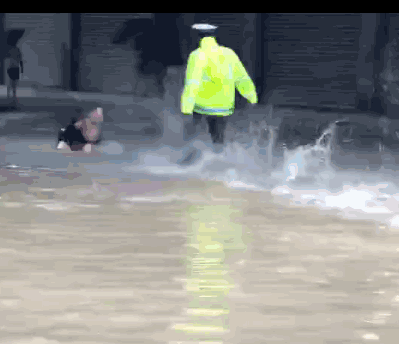http://www.cnecn.com.cn/d/file/p/2024/01-09/1d22f4a6af6c0e23fc26e7ad53ad66f6.jpg|http://www.cnecn.co
11月25日,津南区葛沽镇“文明实践我参与民俗文化进校园”活动在葛沽实验小学新校区举办。活动中,主讲人、天津市民间艺术家协会会员段如何被授予聘书,他将不定期走进校园,传授传统文化知识。随后,首堂“葛沽
提到“老赖”二字,大家都恨之入骨,因为多数人都被坑过,所以都有切肤之痛。可是,谁能想到,挥金如土的娱乐圈明星们,也会有成为老赖的一天呢?今天,就来复盘一下圈内的老赖明星和老赖子女,看看哪个最出乎你的意
11月27日,记者袁野发布了题目为《科技赋能新工体中赫发力新赛道》的文章,介绍了中赫集团与腾讯公司签署合作协议,共同打造新工体。袁野还表示,国安在今年、明年都是休养生息,2023年才是重新发力之年。文
http://www.hwenz.com/pic/感情电台文稿故事感情文章散文赏识?感情鸡汤典范语录.jpg
世界杯预选赛首个窗口期,中国男篮迎来两场大胜。虽然这两场比赛对手并非全主力出战,这样的结果已经被很多人所预知,不过从比赛的过程中可以看出,中国男篮队伍的结构在发生着根本性的变化。从三大移动长城时代,就
若日尼奥犯下大错据《每日邮报》消息,在切尔西主场1-1战平曼联后,前切尔西前锋吉米-弗洛伊德-哈塞尔巴因克批评了若日尼奥过于自大,正是因为后者的失误导致了桑乔在比赛中为曼联首开纪录。在桑乔和拉什福德逼

中国消费者报杭州讯记者施本允)防疫物资是当前生产生活的必需品,近日,浙江杭州互联网法院对一起涉防疫物资合同诈骗及境外电信诈骗案作出判决。被告人苏某犯诈骗罪、合同诈骗罪,数罪并罚,判处有期徒刑十二年,并
11月19日至21日,2021中国5G+工业互联网大会在湖北武汉中国光谷科技会展中心举行。伍志尊摄(新华社发)11月20日,参观者在“5G+工业互联网成果展”现场与仿真机器狗互动。伍志尊摄(新华社发)
据《太阳报》消息,瓜迪奥拉日前承认,希望在离开曼城后能在国际赛场上大展宏图,甚至还暗示自己可能有一天会接替索斯盖特成为英格兰主教练。瓜迪奥拉与曼城的合同还有两年,目前没有任何迹象表明他会在短期内离开曼
【视频app日均活跃人数】B站崛起,爱优腾变成了腾爱哔?[思考]
http://pic1.k1u.com/k1u/mb/d/file/20240517/1715913358693983_836_10000.jpg|http://pic1.k1u.com/k1u/mb
“有了这张人畜无害初恋脸,扮猪吃老虎就轻松多了”千呼万唤始出来的《女心理师》,是这样开篇的:3分钟的长镜头,镜头跟随着男二叶嘉辉穿过商业区,镜头中带过焦虑的二胎妈妈、夹缝中求生的职场小丑、空巢老人、暴
Wind数据显示,12月共有201家公司合计349.26亿股限售股解禁上市。以最新收盘价计算,解禁市值约为5483.29亿元,较11月上升80%,也是年内解禁市值第三高的月份。本月解禁峰值发生在第二周
北京时间11月30日,据美国媒体报道,布雷克-格里芬在最近两场比赛跌出了球队正常轮换,近日接受采访时他谈到了这一感受。“阿尔德里奇最近的表现非常好,我是教练也会让他打首发并且更多的出场,能够理解教练的
旧房局部改造,防水究竟要不要重做?2025-05-07来源:德阳家装关键词:旧改热度:3715如今,旧房改造可是家装界的热门话题。一方面,很多老旧小区占据着城市的核心地段,周边配套成熟,生活便利性极高
被各种商家营销套路侵害权益?买到的商品出故障投诉无门?黑猫投诉平台全天候帮您解决消费难题【消费遇纠纷,就上黑猫投诉】互联网应用适老化改造成效明显,各方正努力解决一些实际问题让老年人更适应数字生活金台视
【作者:小小柒】提起“玖月奇迹”,大家都会想到她们在《星光大道》上的风采,两人能唱能弹,搭配无间,堪称全能型歌手。她们和“凤凰传奇”有很多相似之处,都是一男一女的搭配,都在广场舞上占有半壁江山,而且都
暴露智商,这波翻车一点也不冤近日,张静初、舒淇、杨子姗,吴越等艺人被骂惨了。起因是张静初发了一个推广素食主义的视频。她说吃素后,身心感到从未有过的轻盈,整个视频在讲吃素百益无一害,找来了医生、运动员、
http://www.hwenz.com/pic/豪情经历100字尽好案牍配图十面夜听人逝世感悟.jpg
北京时间11月28日,金州勇士以105-90战胜了洛杉矶快船。此役,斯蒂芬-库里在比赛中由于不满裁判的判罚,因此,他被吹技术犯规。赛后,科尔也是回应了库里吃T。科尔说:“我很长一段时间没看到库里这么沮
中国共产党第十九届中央委员会第六次全体会议于2021年11月8日至11日在北京举行。在建党百年之际,党中央召开六中全会具有重要意义,全面总结党的百年奋斗重大成就和历史经验,深刻揭示了“过去我们为什么能